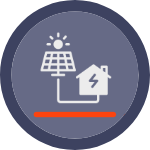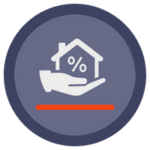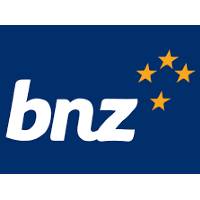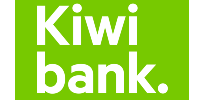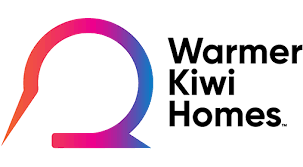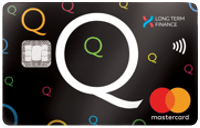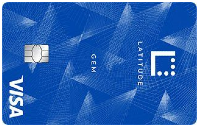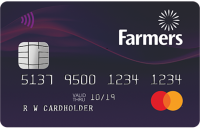Green energy loans, grants, and finance
Whether you need solar panels, insulation, or energy-efficient heating, we help you find the best sustainable energy finance option for you.

Updated: 23 November 2025
We’ve refreshed this guide to reflect the latest changes to sustainable energy finance options currently available in New Zealand. Changes include:
Removal of the Marlborough District Council energy‑efficiency loan: The council suspended new applications as banks were offering lower interest rates.
Removal of Hawke’s Bay Regional Council’s Sustainable Homes loan: Hawke’s Bay also removed it’s sustainable home loan option and instead promotes the Warmer Kiwi Homes initiative.
Author: Kevin McHugh, Head of Publishing at Banked.
In this guide, we explore all available loans, grants and interest-free finance options for the purchase of home improvements including:
- a sustainable energy system, such as solar power, micro-hydro, wind energy or geothermal
- heating or insulation, such as a heat pump, wood burner, home insulation, double glazing, and so on.
Check out our separate guide if you’re looking for a loan for an electric (EV) or hybrid vehicle.
Quick guide
Browse the full guide or use the links below to jump to the right section.
For a sustainable energy system
If you want to install solar panels, you have a wealth of options:
- If you have a home loan, consider a home loan top-up from one of the big banks. Westpac currently offers a zero-interest home loan top-up of up to $50,000 for 5 years.
- Several credit cards offer interest-free finance deals with outlets that install solar panels. But don’t forget that fees apply and that a high interest rate kicks in after the interest-free period ends.
- A standard personal loan is also worth considering if you are not eligible for one of the lower interest rate alternatives.
Your options are more limited if you want to install a small-scale hydro, wind, or geothermal energy system:
- Kiwibank’s Sustainable Energy Home Loan top-up can be used for to purchase one of these systems.
- You can also apply for a personal loan.
For heating or insulation
If you’re interested in an energy-efficient heating system (such as a heat pump or wood/pellet burner) or insulation (including wall and ceiling insulation or double/triple glazing), consider these options:
- Check if you’re eligible for a Warmer Kiwi Homes Grant which will cover 80% of the cost.
- If you have a mortgage, consider a low-rate home loan top-up from a bank.
- A credit card with interest-free finance deals may be a good choice as several have deals with heating and insulation providers.
- A personal loan can also be used to purchase a heating system or insulation.
A home loan top-up from a bank
All of New Zealand’s major banks offer some kind of green energy finance in the form of a home loan top-up. Some can only be used to fund the purchase of a sustainable energy system, such as solar panels, while others can also be used to buy heating or insulation.
These loans can range from interest free for up to 5 years, to a variable interest rate of around 8% for up to 10 years.
To take advantage of these home loan top-ups, you must already have your home loan with that bank or lender. However, you can move your mortgage to that lender to get access to their offer (although a loan establishment fee may be involved).
In this section, we explore all of your home loan top-up options, the eligibility criteria of each, and their pros and cons.
Westpac
Formerly known as the ‘Warm Up’ loan, Westpac’s Greater Choices home loan top-up is interest free and you can borrow up to $50,000 over 5 years.
If you are unable to pay off the loan within the 5-year period, a default interest rate of 5% will apply to the outstanding balance.
What it can be used for:
- A solar energy power system, including batteries
- Heating, including heat pumps and wood burners
- Insulation and ventilation
- Double glazing
- An electric vehicle charger
- In August 2023, Westpac expanded the loan to allow for the purchase of EVs and hybrid vehicles.
Note that Westpac also offers a separate, specific loan for electric vehicles, which you can learn more about in our guide to EV loans.
Eligibility criteria
- You must have a home loan with Westpac, or be willing to move your mortgage to the bank.
- You must have at least 20% equity in your home if you are an owner-occupier. This increases to 40% for an investment property.
Pros and cons of the Westpac Warm Up loan
Pros
- The only green energy home loan top-up with 0% interest.
- A loan term of 5 years is longer than average.
- No establishment fee or early repayment fees.
Cons
- The maximum loan of $50,000 may not be enough for some.
Learn more or apply on the Westpac website.
ANZ
With the ANZ Good Energy home loan top-up you can borrow up to $80,00 to make your home more energy efficient. You can also use the loan for an electric or hybrid vehicle.
The loan has an interest rate of 1% and is repaid over a term of 3 years.
If you have not fully paid off the loan within this 3-year period, you can choose to refix at the bank’s fixed or floating interest rates.
What it can be used for:
- Solar panels and batteries
- A heat pump or water heating system
- Insulation (including double glazing) and ventilation
- A rainwater tank
- An electric or plug-in hybrid vehicle (including an ebike) and an electric vehicle charger.
Eligibility criteria
- You must already be an ANZ home loan customer, or be willing to switch to ANZ.
- You must have at least 20% equity in your home.
- Your purchase must meet ANZ’s criteria, as defined on its website.
Pros and cons of the ANZ Good Energy home loan
Pros
- Possible to borrow up to $80,000.
- A low interest rate of 1%.
- Unlike some alternatives, you can use the ANZ loan to purchase an EV.
- No establishment fee.
Cons
- The loan term of 3 years is fairly short (after which the interest rate increases).
- There is a fee for early repayment.
Learn more on the ANZ website.
BNZ
Very similar to ANZ’s offering, the Green Home Loan top-up from BNZ allows you to borrow up to $80,000 over a 3-year term. It also has an interest rate of 1%.
If you cannot pay off the loan within 3 years, the loan can either be refixed to a higher rate or the bank’s floating home loan rate will apply.
What it can be used for:
- Solar panels, batteries and inverters
- A heat pump or water heating system (including a solar water heater)
- Insulation and ventilation, including double or triple glazing
- A rainwater tank
- An electric or plug-in hybrid vehicle (including ebikes) and electric chargers.
Eligibility criteria
- You must be a BNZ home loan customer or be willing to move your mortgage to BNZ.
- You must have 20% equity in your home.
- Your purchase must meet BNZ’s criteria, as defined on its website.
Pros and cons of the BNZ Green Home Loan
Pros
- Has a low interest rate of 1%.
- You can also use the loan to purchase an EV or plug-in hybrid.
Cons
- Unlike some other banks’ loans, an establishment fee of $150 applies for new customers and a $100 top-up fee may apply for existing customers. A fee may also apply for early repayment.
- The 3-year term will be too short for some.
Learn more on the BNZ website.
Kiwibank
Kiwibank’s Sustainable Energy Loan top-up can be used to purchase a wider range of sustainable energy systems than some of its competitors. However, it cannot be used to buy home heating or insulation.
The amount you can borrow will depend on how much of your home loan you’ve already paid off, the value of your home, and how much Kiwibank believes you can comfortably repay. The minimum loan term is 7 years while the maximum is 10.
Unlike the other banks, Kiwibank does not offer a more favourable interest rate than its regular home loan rates and its standard variable rate home loan rate (8.50% at the time of writing in July 2023) applies.
However, if you borrow more than $5,000, Kiwibank will contribute up to $2,000 to the cost of your sustainable energy system over a 4-year period ($800 at the end of the first year and then $400 at the end of each of the following three).
What the loan can be used for:
- A solar power system
- A small-scale hydro system
- A wind energy system
- A geothermal energy system.
Note that NZHL, owned by the parent company of Kiwibank, also offers this same loan.
Eligibility criteria
- You must either be a Kiwibank home loan customer or move your home loan to Kiwibank.
- You must have at least 20% equity in your home.
- Your purchase must meet Kiwibank’s criteria, as defined on its website.
Pros and cons of the Kiwibank Sustainable Energy Loan
Pros
- The loan can be used for small-scale hydro, wind or geothermal energy systems (unlike many other finance options)
- Kiwibank will effectively pay off up to $2,000 of the loan if you borrow more than $5,000.
- No establishment/top-up fee applies.
Cons
- The interest rate is higher than similar loans from other banks.
- An early repayment fee applies.
Learn more on the Kiwibank website.
ASB
ASB’s Better Homes top-up loan offers up to $80,000 at an interest rate of 1% fixed for a 3-year period for the purchase of better heating, insulation, solar energy, and more.
If you are not able to pay off the loan within this 3-year period, ASB’s variable rate applies.
What the loan can be used for:
- Heating, including a heat pump system, wood burner or wood pellet burner
- Insulation and double or triple glazing
- Better ventilation, including extractor fans and ground moisture barriers.
- A solar energy system including batteries and inverters.
- An electric vehicle or plug-in hybrid.
Eligibility criteria
- You must have a home loan with ASB or be willing to switch to the bank.
- You must have at least 20% equity in your home if you are an owner-occupier, or 40% if yours is an investment property.
- Your purchase must meet ASB’s criteria, as defined on its website.
Pros and cons of the ASB Better Homes loan
Pros
- Offers a low 1% interest rate
- Can also be used to purchase an EV or plug-in hybrid.
Cons
- Like similar loans from ANZ and BNZ, the 3-year term for the 1% rate will not be long enough for some.
- A top-up fee of $99 may apply, as may an early repayment fee.
Learn more on the ASB website.
The Warmer Kiwi Homes Grant
Offered by the government, the Warmer Kiwi Homes programme offers grants to low-income homeowners for the purchase of insulation or heating.
The grant covers 80% of the total cost for either:
- ceiling and underfloor insulation (wall insulation is not included)
- an approved heater, such as a heat pump or wood or pellet burner (heater grants are capped at $3,000, including GST).
Who’s eligible?
You may be eligible for the Warmer Kiwis Homes grant if:
- You own and live in a home that was built before 2008
- You have a community services card or you live in an area that is identified as low income.
- If you’re applying for an insulation grant, your current home must not already have ceiling or underfloor insulation.
- If you’re applying for a heater grant, you must already have ceiling and underfloor insulation, and you must not already have a heat pump, wood or pellet burner, flued gas heater, or central heating system.
If you’re still not sure, you can check your eligibility using the Warmer Kiwi Homes tool.
You can also use the tool to start your application and be connected with an installer who can provide you with a no-obligation quote.
Learn more about the Warmer Kiwis Homes grant programme on its website.
An interest-free finance credit card
An interest-free finance credit card lets you buy products or services from a number of providers with zero interest to pay over a set period. How long this period is depends on the outlet, but it ranges from 12 months to 4 years.
There are a number of providers that can provide heating, insulation and solar energy systems through one of these interest-free finance credit cards. These include Harrisons Solar, Brightr, Daikin, and HRV.
While there is no interest to pay during this period, all credit cards that offer this feature include both an annual fee and an establishment fee for arranging the finance.
If you take advantage of one of these interest-free finance deals, but aren’t able to pay it off within the interest-free period, the card’s standard interest rate will apply to the remaining amount.
As this rate can be as high as 28% (depending on the card), it’s important to pay the full amount before this period expires.
Let’s take a look at the available cards and the deals they offer.
Q Mastercard
The Q Mastercard offers 3 months 0% interest all purchases, but it also has a selection of interest-free finance arrangements with providers that offer heating, insulation and solar power installation services. These deals include:
- Solar Future — 36 months interest free. Solar panels and related services.
- Harrisons — 24 months interest free and no payments. Offer solar panels, batteries, and inverters.
- HRV — 24 months interest free. Offers ventilation and heating.
- Oxygen Air— 60 months interest free and no payments. Offers air conditioning and heat pumps.
Fees and interest
- Annual fee: $50
- Establishment fee (applies when you take out an interest-free finance deal): $55
- Standard interest rate (only applies to any outstanding amount at the end of the interest-free period): 28.95%
There are other fees that apply to use of the Q Mastercard. See the Q Mastercard website for more for a full list of all fees.
Gem Visa
The Gem Visa offers 6 months interest free on all purchases over $250, as well as interest-free finance at providers that offer energy efficiency products and services.
These deals include:
- Daikin — Offers heat pumps and other heating systems.
- Harrisons Solar — 48 months interest free. Offers solar panels, batteries, and inverters.
- DVS — 24 months interest free. Heat pumps and home ventilation.
Fees and interest
- Annual fee: $65
- Establishment fee (applies when you take out an interest-free finance deal): $55
- Standard interest rate (only applies to any outstanding amount at the end of the interest-free period): 29.49%
Other fees may apply. See the Gem Visa website for more.
Flight Centre Mastercard
The Flight Centre Mastercard is offered by the same company as the Q Mastercard (the Humm Group) and it has similar benefits.
The card doesn’t offer quite as many interest-free finance deals with providers that offer green energy/energy efficiency products, but there are options. These include:
- Harrisons Solar. Offers solar panels, batteries, and inverters.
- HRV. Offers ventilation and heating.
- Heathcote Appliances. Offers air conditioning and heat pumps to those living in the Waikato region.
Fees and interest
- Annual fee: $50
- Establishment fee (applies when you take out an interest-free finance deal): $55
- Standard interest rate (only applies to any outstanding amount at the end of the interest-free period): 22.95%
Other fees may apply. See the Flight Centre Mastercard website for more.
Farmers Mastercard
Also from the Humm Group, the Farmers Mastercard has the weakest selection of interest-free finance deals with energy-efficiency service providers. There are currently only two:
- Harrisons Solar. Offers solar panels, batteries, and inverters.
- HRV. Offers ventilation and heating.
Fees and interest
- Annual fee: $50
- Establishment fee (applies when you take out an interest-free finance deal): $55
- Standard interest rate (only applies to any outstanding amount at the end of the interest-free period): 29.50%
Other fees may apply. See the Farmers Mastercard website for more.
Pros and cons of an interest-free finance credit card
Pros
- Zero interest applies if you pay off the full amount within the deal period.
- Unlike other options, you don’t have to have a home loan with a bank or live in a particular region of New Zealand to be eligible.
- You can choose from some of the biggest energy-efficiency service providers in New Zealand.
Cons
- Once the interest-free period expires, a very high interest rate applies to any amount outstanding.
- All cards come with an annual fee and an establishment fee for arranging the finance.
- You are limited to one of the service providers the card has an interest-free deal arrangement with.
- The interest-free period can be as short as 1 year in some cases.
A personal loan
A standard personal loan may not have the low rates of a home loan top-up, for example, but there is greater choice and flexibility with loan terms.
Although some lenders have a fixed interest rate, personal loan rates generally depend on your personal circumstances, credit history, and whether you want a secured or unsecured loan.
If you’re comparing personal loans, remember to factor in all fees that might apply. These can include an establishment fee, an early repayment fee, and a broker fee (if you go through a loan broker).
See our guide to home improvement loans to compare options too.
Pros and cons of a personal loan
Pros
- Choice. There are many lenders that offer personal loans and you also have the choice of a secured or unsecured loan.
- It’s easier to find a loan term that fits your needs.
- It’s not necessary to choose from a limited selection of service providers approved by the lender.
Cons
- Personal loan interest rates are higher than the alternatives so you may pay more for the loan overall.
- Fees, such as an establishment fee, will apply (varies with each lender).
Compare personal loans
| Lender | Interest rate (p.a.) | Loan types | Terms | Establishment fee | |
|---|---|---|---|---|---|
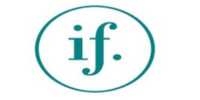 Instant Finance
Instant Finance
|
9.95% - 29.95% | Secured and unsecured | 3 months to 7 years | From $100 to $220 | |
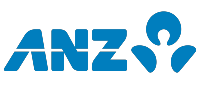 ANZ
ANZ
|
13.90% | Unsecured | 6 months to 7 years | $0 | |
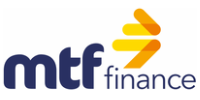 MTF Finance
MTF Finance
|
9.90% to 23.25% | Secured and unsecured | 3 months to 5 years | Up to $376 | |
 The Co-operative Bank
The Co-operative Bank
|
9.95% to 17.75% | Unsecured | 6 months to 5 years | $155 | |
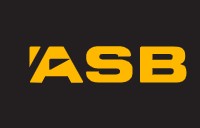 ASB
ASB
|
13.90% | Unsecured | 6 months to 7 years | $99 | |
 Westpac
Westpac
|
13.90% | Unsecured | 6 months to 5 years | $0 | |
 BNZ
BNZ
|
12.65% | Unsecured | 3 months to 5 years | $50 |

